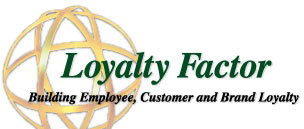70% of organizational changes fail and these failures can be traced to ineffective leadership.
Ask & You Shall Sell
Successful sales people know to focus more on the customer than on the product or service they are trying to sell. People buy from people. In this program, attendees will learn specific strategies and techniques to build rapport in order to build sales. The initial key is to identify the specific buying styles of individual prospects and customers. Once a person's buying style is recognized, the sales person can then introduce products and services appropriately using value statements and questioning strategies that uncover the real, though often hidden, needs and buying criteria of the individual.
During this program, participants will learn how to position their products or services to minimize client objections, as well as strategies to handle objections as they occur. Specific skills participants will learn include:
- Strategies and techniques to build rapport and sales
- Using NLP techniques to uncover key buying criteria of prospects and customers
- Introducing products and services using value statements
- Using questioning strategies to uncover hidden needs
- Reframing customer expectations
In addition, participants will practice ways to transform their personal impact in a selling environment including eye contact, energy intensity, listening involvement, humor and the importance of being themselves.
At the conclusion of the program, participants will have the selling skills necessary to increase their personal productivity and profitability, as well as the profitability of the organization.


